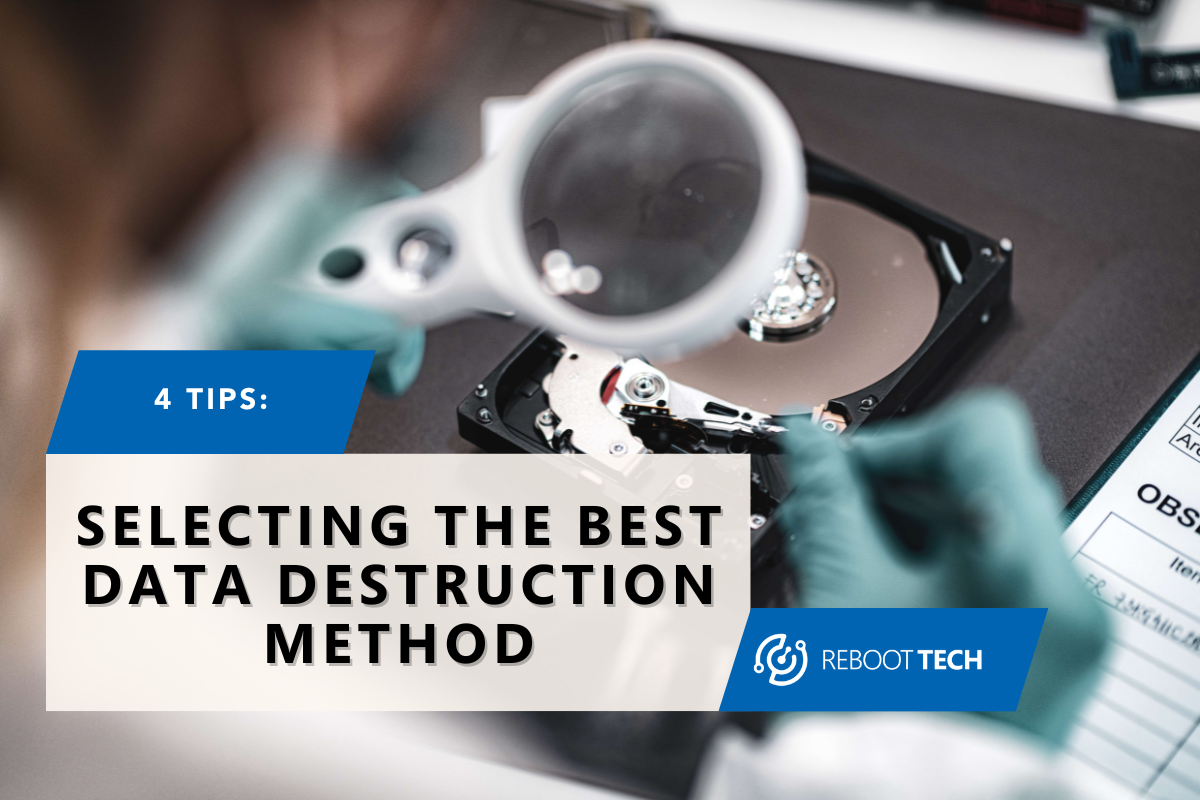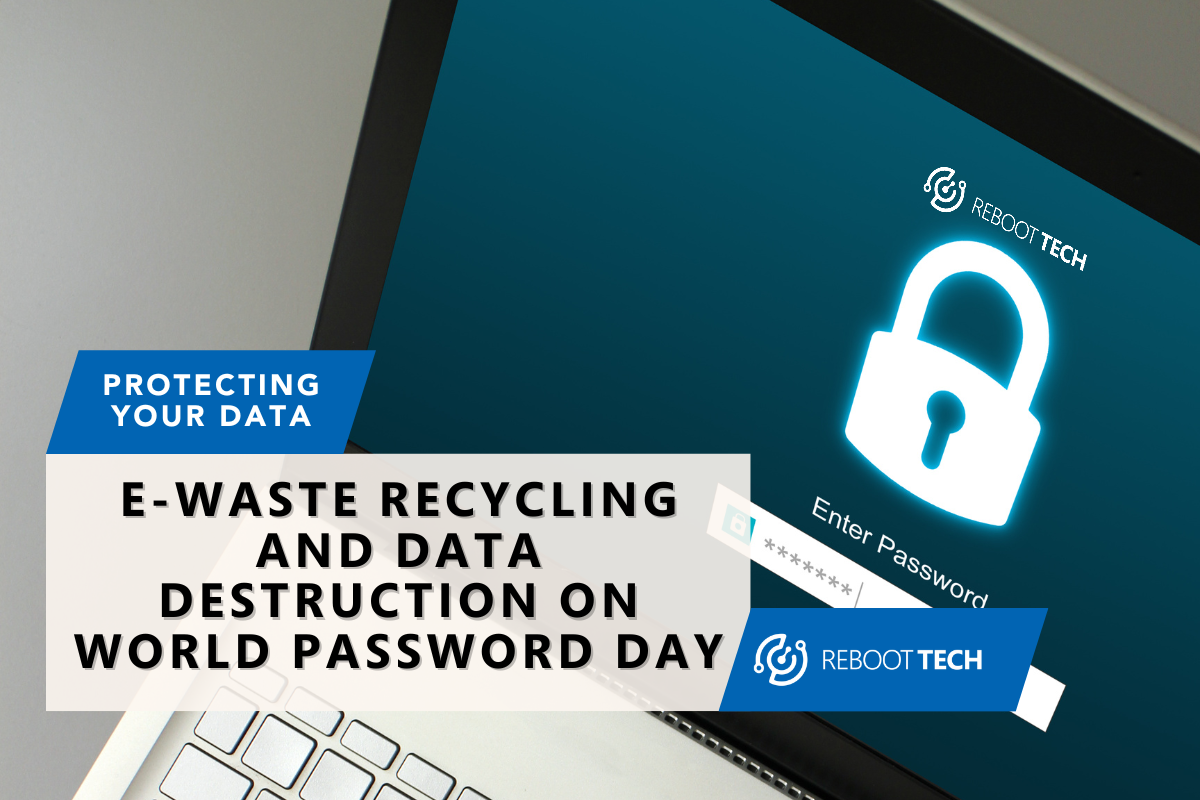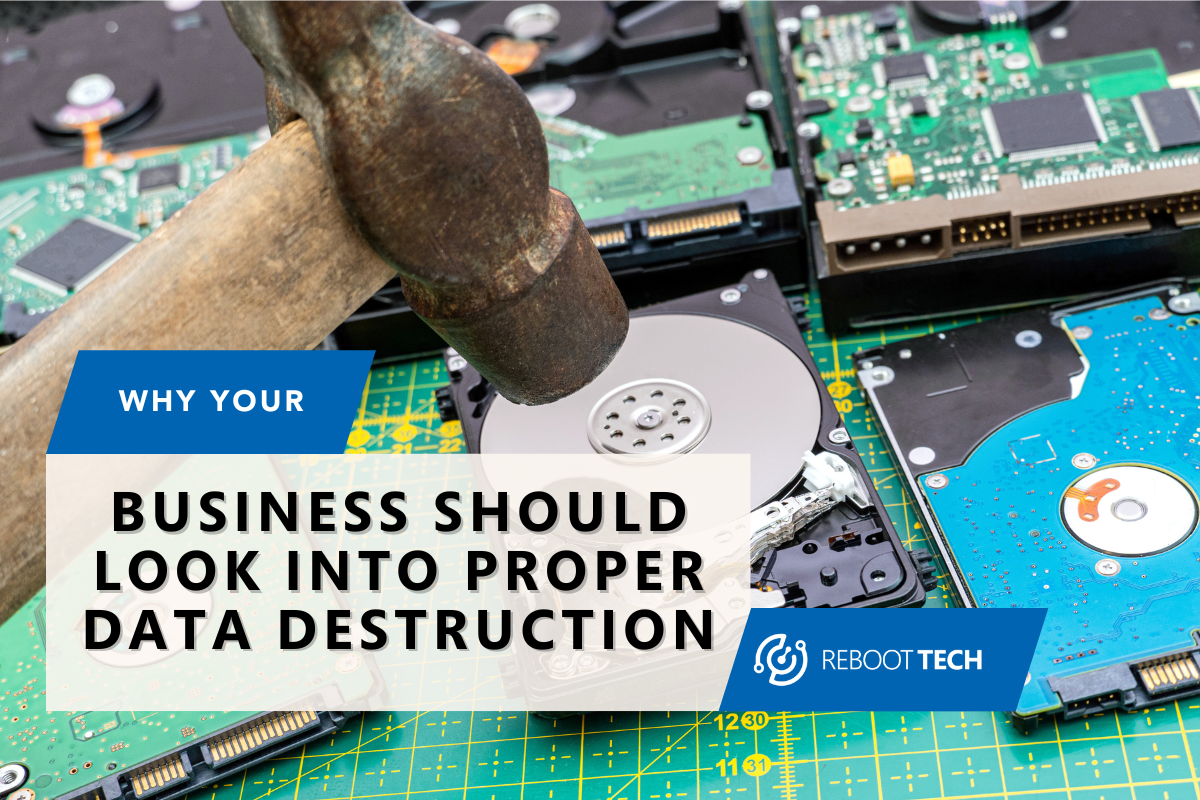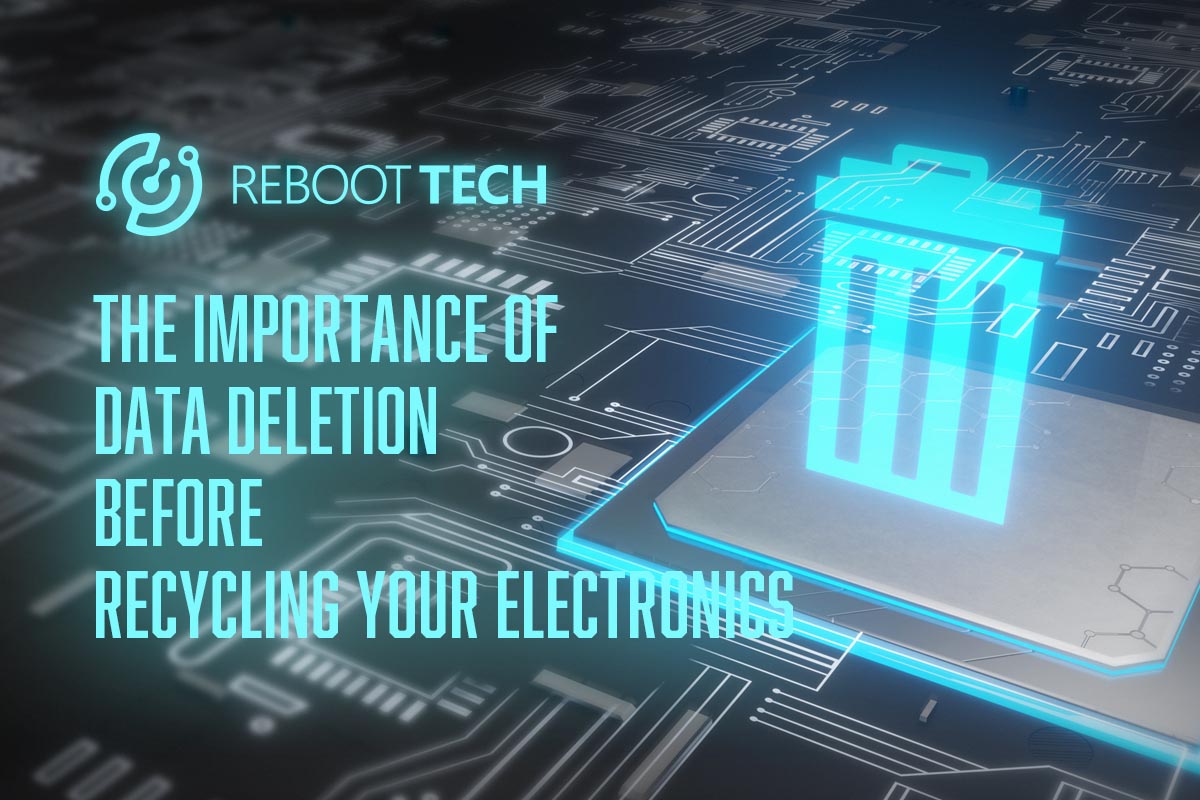
Why Is It Important to Delete Data Before Recycling Electronics?
One of the most common things we do with our old electronic devices is throw them away. But what many people don’t realize is how important it is to erase all of the data stored on these devices before discarding them.
If you don’t erase all of your data before getting rid of your electronics, it can still be accessed by hackers. In this blog post, we’ll explore why it’s so important to completely erase your electronic data before discarding it and how correct disposal can help the environment.
Data Privacy Concerns
Recycling electronic devices without data destruction can lead to private information ending up in the wrong hands. This can lead to data breaches, privacy breaches, identity theft, and other forms of cybercrime. Electronic devices can have various operating systems. These operating systems may contain personal and sensitive data such as finances, pictures, passwords, addresses, medical records, company information, and passwords.
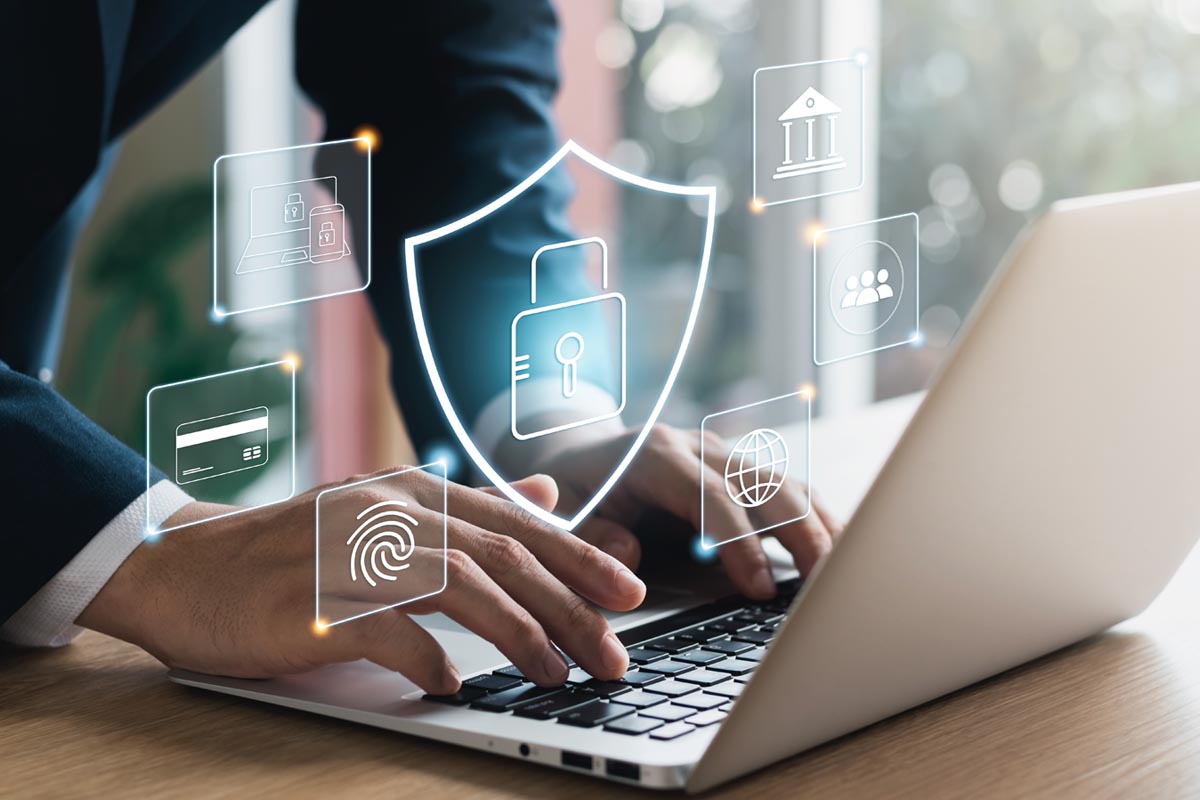
Legal Compliance
In some jurisdictions in the United States, laws require that people and groups throw away electronic devices correctly. Not deleting data before recycling or using data erasure can lead to legal trouble and result in fines or penalties. We know that can be extremely time-consuming so we make the data destruction smooth with all legal compliance in place.
Why Deleting Information May Not Be Enough
While deleting data, emptying it into the recycling bin, or formatting the device may seem good enough, it’s important to understand that deleted sensitive data can still be recovered using specialized software. Hackers can access deleted information by using storage media, files, folders, and metadata that are still present on devices.
Data Destruction Methods
There are different ways to delete data from electronic devices securely. These methods include overwriting, physically destroying devices, and encryption. Overwriting is safe but takes time while physical destruction guarantees full data removal but needs proper disposal. Encryption needs strong codes and careful key handling.
Understanding each method’s requirements is crucial in order to pick the right one. Each method has its pros and cons, so people should select what suits them best. For some basic steps to erase your data, you can save important files, reset the device, use special software, or visit a certified recycler.

Importance of Certified Data Destruction Recyclers
Certified recyclers know how to handle electronic waste safely. They use special tools to erase data from devices, which lowers the risk of identity theft or data leaks. When we give our electronic waste to certified recyclers, we help protect the environment and keep our personal information safe.
Educational Initiatives
It’s important to teach people about deleting data before recycling.
- Make sure people know and can take steps to protect their privacy and the environment
- Hold presentations/seminars in schools and communities
- Support recycling programs and encourage using certified recycling services for electronics and data destruction processes.
Conclusion
In conclusion, properly wiping data before recycling electronics is vital. It keeps personal information safe and helps our environment. By erasing data securely, we stop it from getting misused. Also, recycling devices cut down on e-waste in landfills, lowering the risk of releasing harmful chemicals into soil and water. This eco-friendly way of disposing of electronics is key to a sustainable future.


